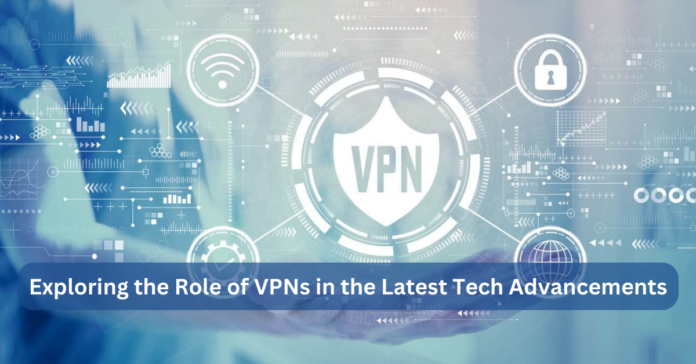Recently, technology has developed so quickly that it has been impossible not to think whether this new trend requires the most efficient communicative means of all time or not. A notable new technology addressing this requirement is the Virtual Private Networks (VPNs). A virtual private network (VPN) is a kind of network which enables Internet usage in safety and anonymity. Businesses and consumers use WPA and WEP to encrypt privacy at a distance for secure cloud access.
This article shall discuss the importance of VPNs in recent technology breakthroughs. This paper entails understanding what VPNs are all about, their advantages, and types, and how to select the best among them.
Additionally, we shall give you guidelines on using VPNs in businesses.
Lastly, our focus is on the future aspects of VPN and forecasting of VPN for businesses.
After reading through this article, it should be easy to understand how VPNs can best support your company in these technological improvements.
Let’s get started!
Value of VPN technology and tech advancements
Technological progress depends on VPNs as they provide a secure connection for transferring data safely. They are particularly valuable in the following areas:
- Remote work and access: VPs help in remote access in a secure manner allowing employees in far places to easily work together increasing productivity.
- Cloud computing: Using VPNs guarantees that all the accessed cloud-based applications and their accompanying data will be safely accessible because no third party will have the chance of viewing or misusing the sensitive information involved
- E-commerce and online transactions: In such activities as online shopping or banking, VPNs help to secure users’ financial transactions and personal information.
- Bypassing censorship and geo-restrictions: Through VPNs, users can also circumvent censorship and geo-blocking thus enabling them to visit sites with restricted access.
Brief History of VPN
Initially, the term VPN was coined in the early seventies to enable a way through which enterprises could set up reliable links between branch offices. First, initially, VPN was just for companies but now it is about people wishing more secure web environment.
Benefits of VPN
There exist numerous advantages associated with VPNs thus making it one of the essential tools in the day-to-day activities of both individuals and business people. The key advantages include:
- Increased security: VPNs encrypt internet traffic thereby ensuring that sensitive data is not accessible to any unauthorized person besides preventing cyberattacks.
- Cost savings: VPNs help in removing the costs of dedicated leased lines and hardware hence reducing IT infrastructure costs.
- Improved privacy: VPN services encrypt and hide IP addresses as well as users’ online activity to prevent online tracking and monitoring of internet activities.
- Better data management: With VPNs, centralized data management and control can be enabled in order to keep the data secure and compliant.
Types of VPN
VPNs are categorized into different types based on their intended usage and deployment:
- Remote Access VPN: Provides safe access for distant users to an organization’s network.
- Site-to-Site VPN: Allows for a secured connectivity link between at least two sites including offices or disaster recovery centers.
- Mobile VPN: Ensures secure connectivity to company information on phones and iPads.
- Cloud VPN: It is a VPN based on the cloud, which makes it possible to get rid of premises infrastructure.
Deciding on a VPN
Selecting the right VPN requires careful consideration of several factors:
- Security: The VPN must apply strong encryption protocols in compliance with industry security standards.
- Speed: Due to this, VPN ought to have enough bandwidth that support data-intensive activities without affecting performance.
- Compatibility: The VPN must also support the devices and OS it intends to use.
- Price: The best VPN prices depend on specific features and service quality. Assess various pricing plans and select the best match.
How to Use VPN in Your Business
VPNs can be seamlessly integrated into business operations to enhance security and privacy:
- Protecting sensitive data: VPNs ensure that sensitive information such as customers’ details are safe when making financial transactions.
- Securing remote access: They allow employees to securely access corporate networks remotely thereby enabling them to remain productive from any location.
- Enabling secure cloud access: Through secure VPNs, users can access their cloud-based applications and data with assurance that they will remain compliant without experiencing data leakage.
- Enhancing privacy: VPNs keep employees’ personal information safe, allowing users to hide their IP addresses and browse history.
The Latest Tech Advancement and VPN
Considering advancements in encryption and the emergence of artificial intelligence, VPNs will take a greater part in technology direction for the future.
Future Trends in VPN Technology
The future of VPN technology holds exciting possibilities, including:
- Next-generation encryption: VPN security will be improved by refinement of the state-of-the-art encryption algorithms.
- AI-driven threat detection: The use of AI-powered tools will boost, the capacity of VPNS for tracing and neutralizing cyber attacks.
- Integrated privacy solutions: Such VPNs will provide integrated environments that work in harmony with all other privacy-enhancing technologies leading to complete protection environments.
Predictions for VPN in Business
The popularity of VPNs will continue to grow as technology advances and so do cyber threats in the business space.
Here are some key predictions for VPN adoption in the coming years:
- Increased adoption of cloud-based VPNs: The increasing use of cloud-based VPNs is due to the minimization of IT infrastructure expenses, along with enhanced security.
- Integration of VPNs into security architectures: Businesses will incorporate increased use of VPS in order to develop multi-layer and overall protection against cyberattacks.
- Expansion of VPN use to IoT devices: More security for IoT devices as companies link more systems across the web to their systems.
- Growing demand for Zero Trust VPNs: Businesses will try to reduce access risks by employing Zero Trust VPNs that rely on the idea of the least privilege.
- The emergence of new VPN use cases: Users of the future will find novel uses for VPNs, including connecting with remote blockchains, and providing secure cooperation between decentralised workers.
Best VPN Services
Here are some of the best VPN services in 2023:
NordVPN
Many people choose to use it as their VPN because of its numerous strengths. Businesses can also rely on it because there are many business-specific features provided.
ExpressVPN
Another popular and fast one is ExpressVPN. Moreover, it is good for streaming and unlocks many popular streaming sites.
Surfshark
A new player in the market Surf Shark already won over customers by providing the lowest cost and no limitation on the number of devices. It’s a sensible choice for users on a budget who are looking for a VPN for their everyday use.
Private Internet Access (PIA)
PIA also offers strong security features, making it one of the best and privacy-focused VPN providers. This is suitable for individuals who are deadly serious about their online privacy.
ProtonVPN
ProtonVPN is an advanced VPN based in Switzerland that has a stellar reputation with respect to users’ privacy. Users worried about data retention or government surveillance may consider it as a better alternative in this regard.
Conclusion
Businesses use these VPNs which are critical for safeguarding sensitive information, enhancing confidentiality, and enabling secure telework. In the wake of advancing technology which gives rise to growing complexities in cyber security threats, VPNs will remain an integral part of securing corporate operations and the trustworthiness of corporate information.








